

Damion Smy
Suzuki Fronx scores one-star ANCAP rating after seatbelt failure
9 Hours Ago
The Hyundai Venue hasn't gained any new features, but prices are up. Is the flagship Elite still worth buying?
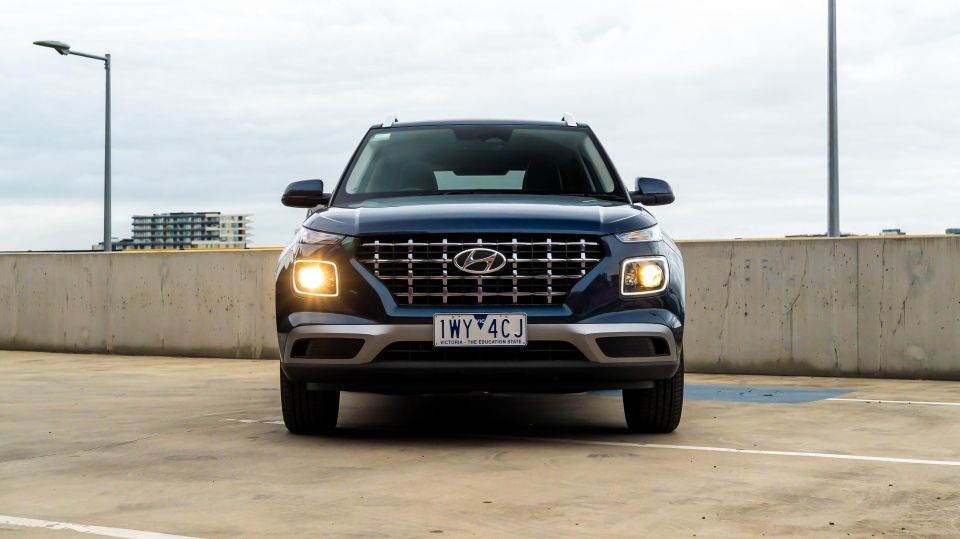
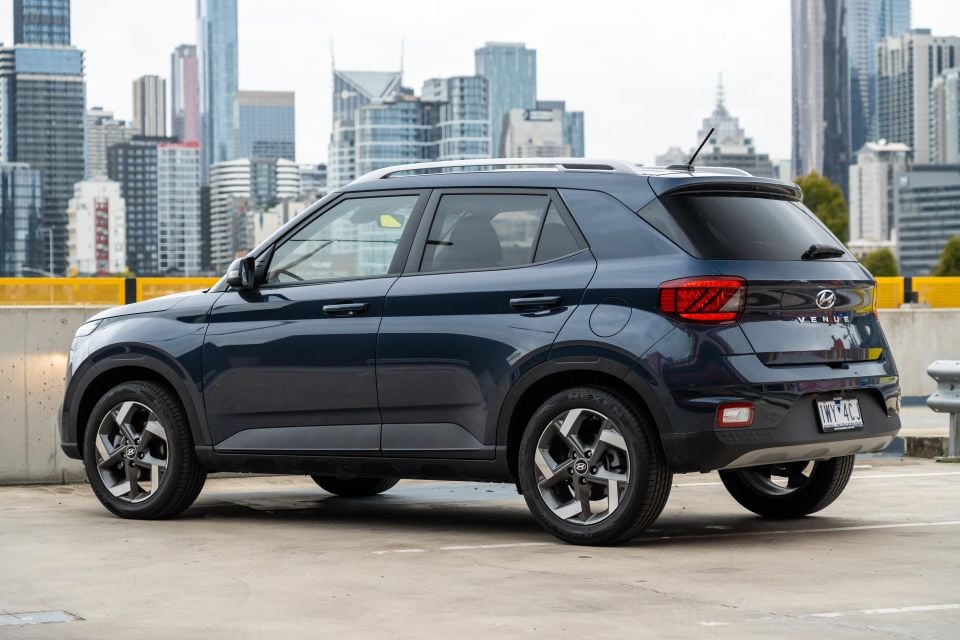

Quickly see how this car stacks up against its competition. Select any benchmark to see more details.
Where expert car reviews meet expert car buying – CarExpert gives you trusted advice, personalised service and real savings on your next new car.
The Hyundai Venue enters 2024 unchanged, aside from a $500 price bump.

Note: This article is based on our most recent review of the Venue, as there have been no major changes to pricing or specifications since it was published.
We have updated the article with the most up to date information available, and you can read our most recent pricing and specs article here.
WATCH: Paul’s video review of the MY20 Hyundai Venue Elite
Despite the hike, it’s still one of the cheapest SUVs in the country – even in flagship Elite form.
Then again, do you want the most expensive version of a cheap car? There are two more affordable versions of the Venue on offer in the range, both of which share their looks and engine with the Elite on test here.
Sometimes when it comes to cheap cars, less can be more – does the Hyundai Venue Elite fall into that category, or does this boxy little SUV still hold up against the competition?
The Hyundai Venue range starts at $22,500 before on-road costs for the base manual, and tops out at $29,250 before on-roads for the Elite tested here.
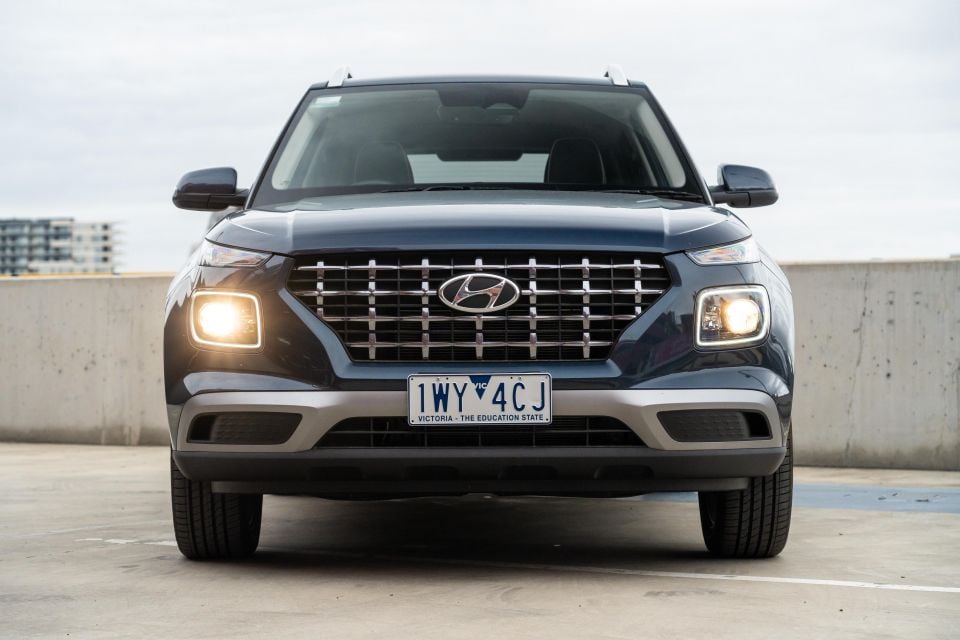
| Model | Price before on-road costs |
|---|---|
| Hyundai Venue 6MT | $22,500 |
| Hyundai Venue 6AT | $24,500 |
| Hyundai Venue Active 6AT | $26,750 |
| Hyundai Venue Elite 6AT | $29,250 |
The car that we are testing is a Venue Elite optioned with The Denim exterior paint ($595), bringing the total recommended retail price to $29,845 plus on-road costs.
To see how the Hyundai Venue compares with its rivals, use our comparison tool
Buy your new car without the stress. It's fast, simple and completely free.

Great service from Travis and team, second time I have used this business would not hesitate to recommend them to anyone
Craig C.
Purchased a Ford Ranger in Sunshine Coast, QLD
CarExpert helped Craig save thousands on his Ford Ranger, now let us save you on your next new car.
Find a dealStepping into the Venue, it’s clear where Hyundai has spent its money on this entry-level model.
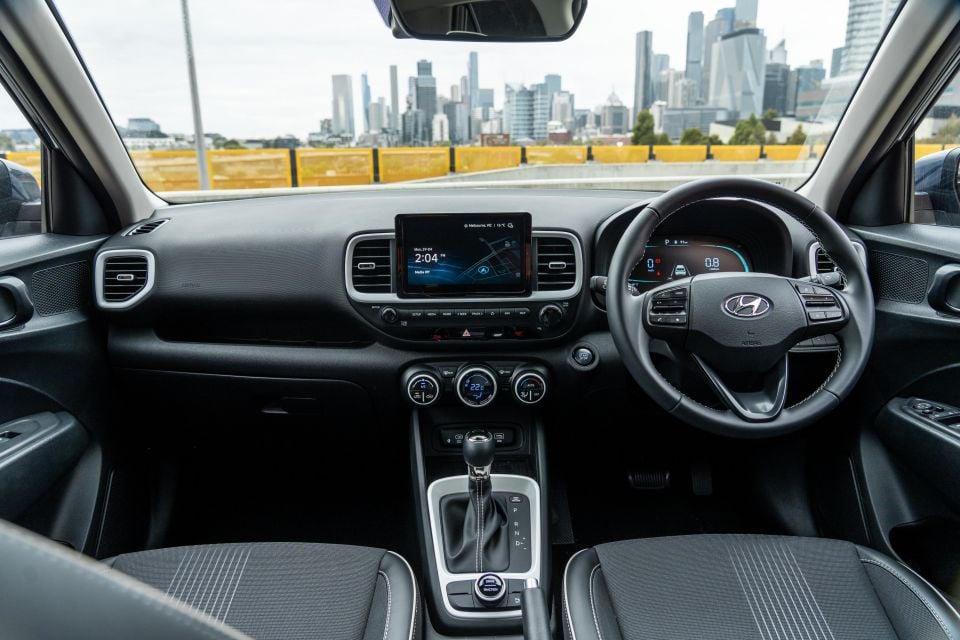
You’re greeted by a leather wrapped steering wheel that feels soft to the touch, and a 4.2-inch trip computer display sits between digital readouts for speed and revs behind it.
Speed and rev displays can’t be moved, while the trip computer shows fuel use and engine temperature readouts in its default setting, but can be configured to show fuel economy, tyre pressure, and lane-keep assistance.
It’s a nice inclusion, but the constantly fluctuating digital rev readout made me feel like I was in the matrix.
Looking left there’s a 8.0-inch touchscreen infotainment system, which will be familiar to Hyundai and Kia owners.
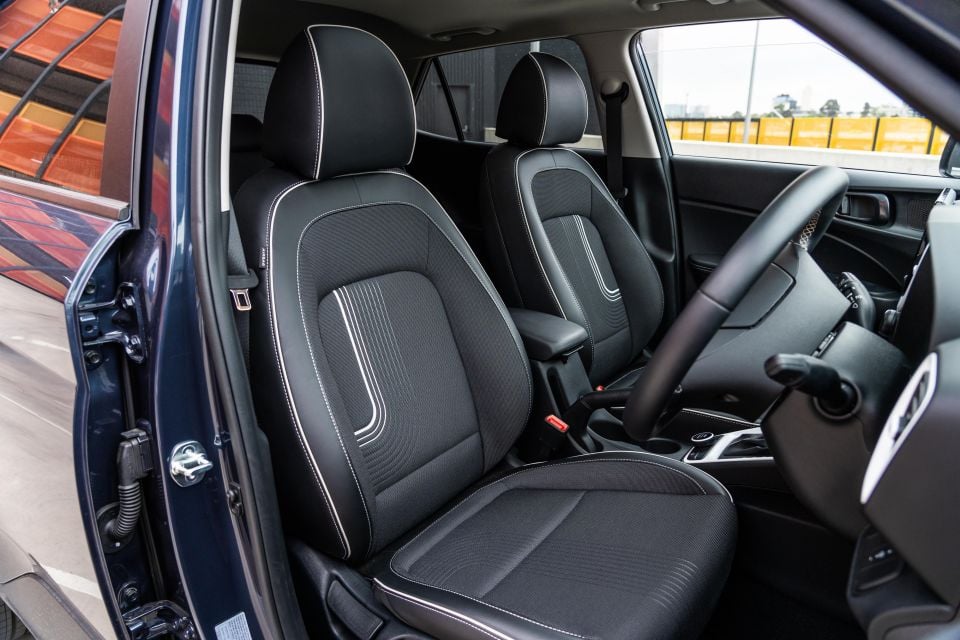
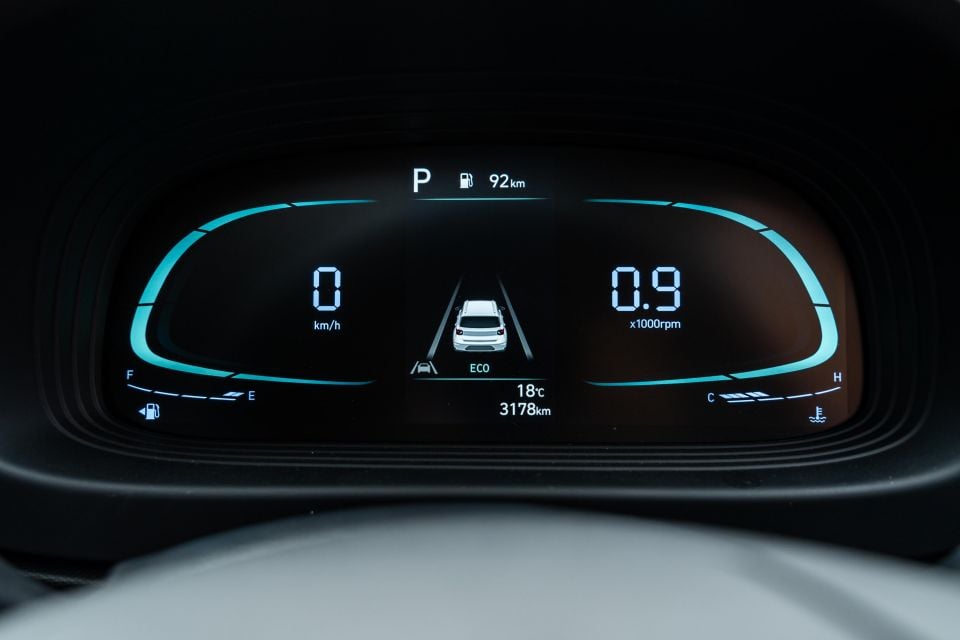
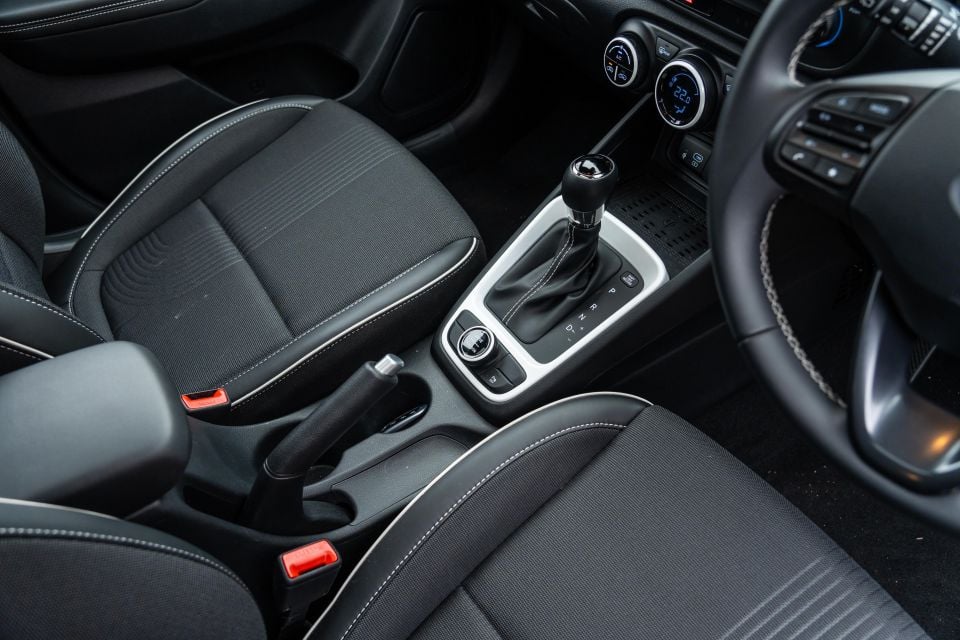
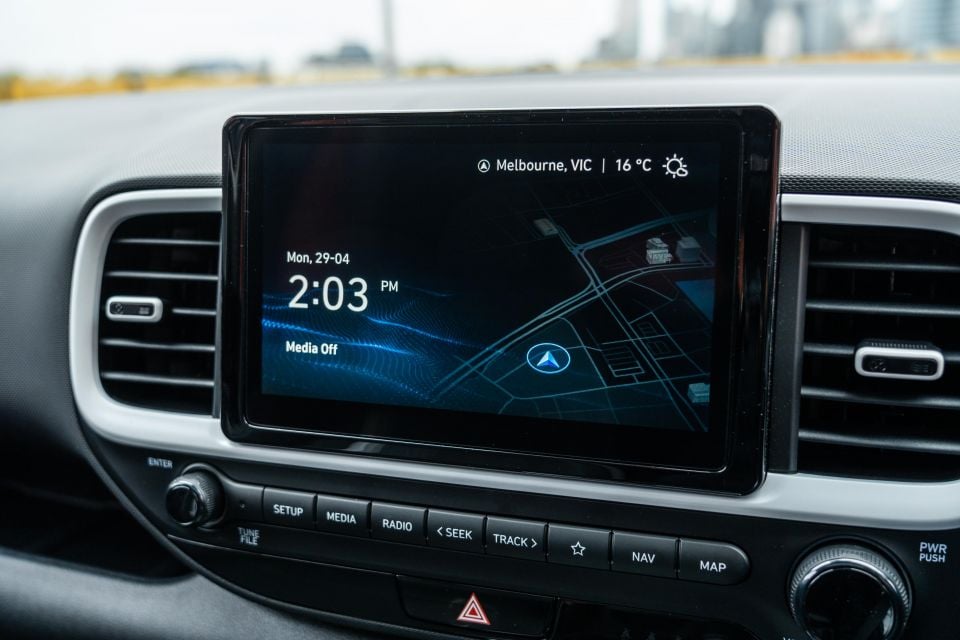
It’s a responsive unit, and physical shortcut buttons are located below it to boost usability.
Smartphone mirroring requires a wired connection, but Apple CarPlay was responsive and reliable during our testing period. The USB-A port offers smartphone mirroring, USB-C is on hand for fast charging, and there’s a 12V port for accessories.
The Venue is equipped with a wireless charging pad, which is handy for those who still prefer to use the native infotainment system. If you’re that way inclined, the built-in satellite navigation is easy to use. The maps are detailed and searching for destinations is a quick process.
Elsewhere in the system, settings can be tweaked for the visual displays and safety aids, so the car can work with rather than against you.
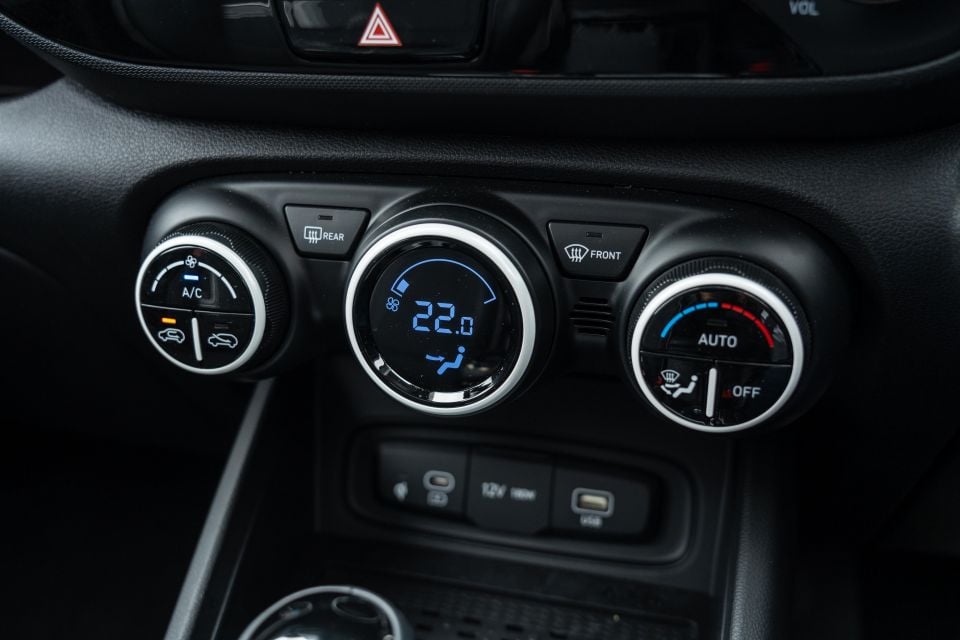
The environment inside the car is controlled by two climate control dials flanking a circular screen that shows temperature and fan speed. The top-spec Elite comes with a sunroof, which is a premium piece of kit for a car in this price bracket.
The Venue may be a budget buy, but in top specification the tech inclusions make it a very functional car in 2024.
In order to keep the car among the most affordable SUVs on the market something has to give, and in the Venue that’s quality of materials.
Outside of the nicely trimmed steering wheel and elbow padding on each door card, the cabin predominantly consists of hard plastics, including a dotted plastic dash which looks and feels cheap.
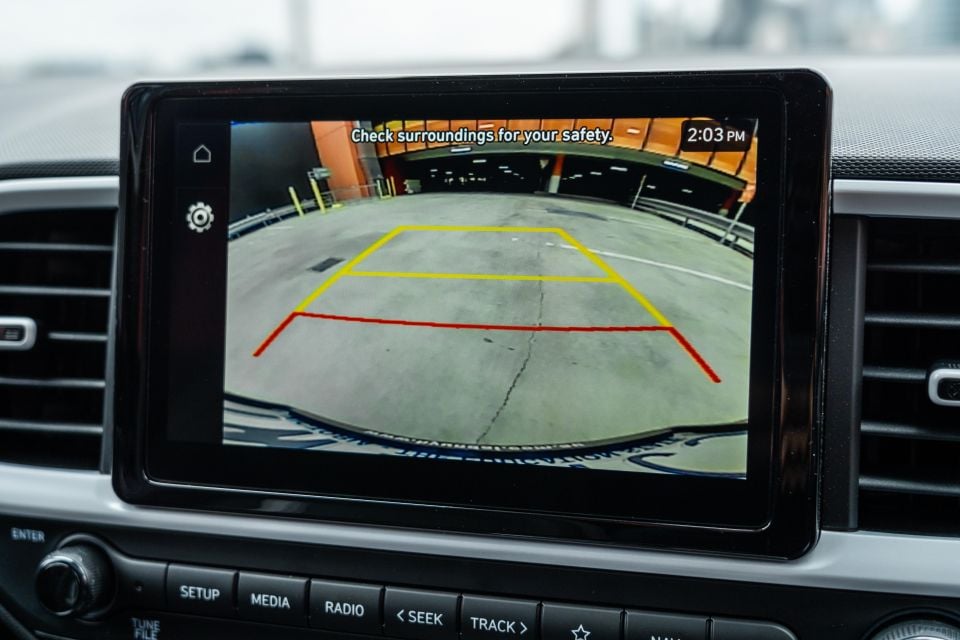
Likewise the door handles, which sit at an angle that makes them feel flimsy.
The air vent and gear lever surrounds are made of white plastic; it’s not my style, although some buyers may appreciate the dash of flair.
The manually adjustable seats, finished in denim-coloured cloth with leatherette accents and white stitching, are interesting to look at and provide a decent level of comfort. There’s not much side bolstering, though.
Considering the small stature of the Venue, the interior storage options are quite generous.

Up the front you’ll find door bins big enough for a small water bottle and other miscellaneous items, while the central cup holders are capable of swallowing a 1L bottle.
A small lined cubby sits under the armrest, and there’s an even smaller space located near the window switches in each door.
On the passenger side, above the standard glovebox is a wide tray carved into the dash which is perfect for a phone or other smaller items.
Moving to the second row, both doors feature a cubby capable of fitting a small drink bottle. There’s no centre armrest though, and just one map pocket.
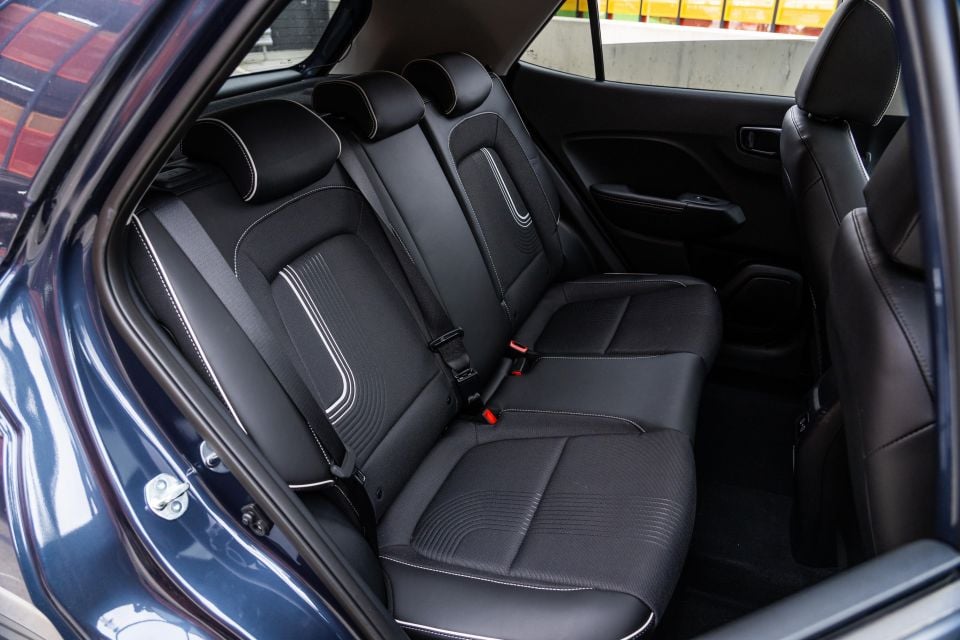
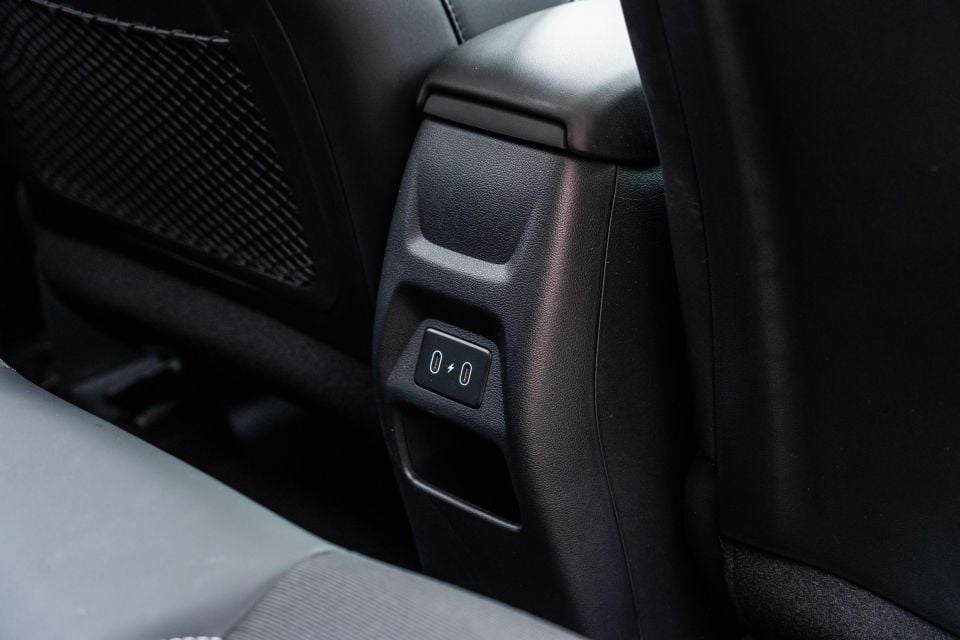
There’s not much room for larger people, either. Kids will be able to get comfortable back there, but bigger bodies will struggle on longer journeys because there’s very little legroom in this tight package.
I had a few inches of headroom though, and the combination of a sunroof and light-coloured headliner prevents the Venue from feeling claustrophobic.
Overall, you get more room than what’s available in similarly priced hatchbacks, and a couple of average-sized adults will fit in the back without issue.
In keeping with Hyundai’s focus on technology in the Venue, rear passengers have access to two USB-C ports, which is a rare feature in economy cars. It can get stuffy though, as there are no air vents in the rear.
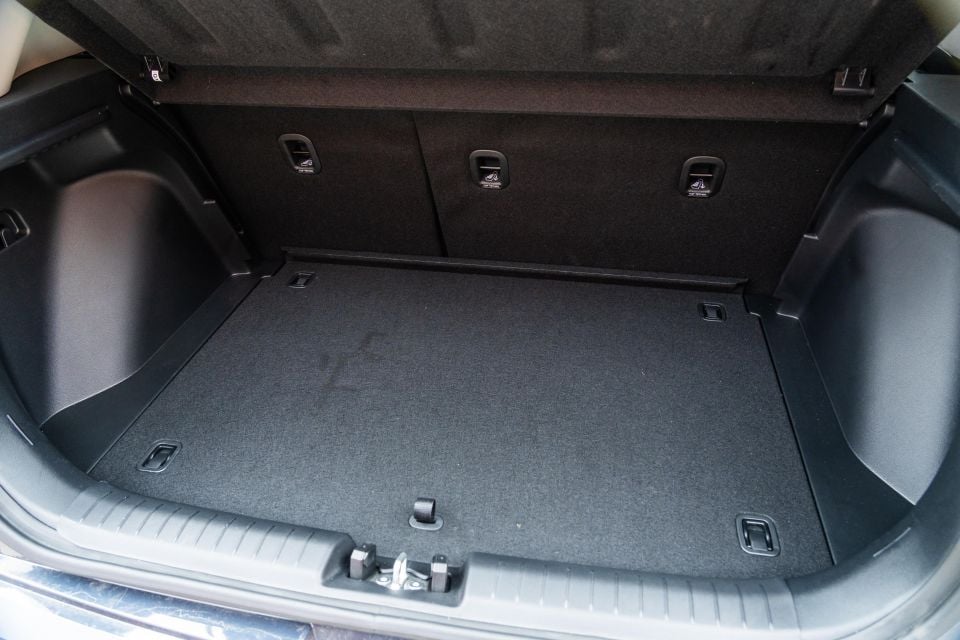
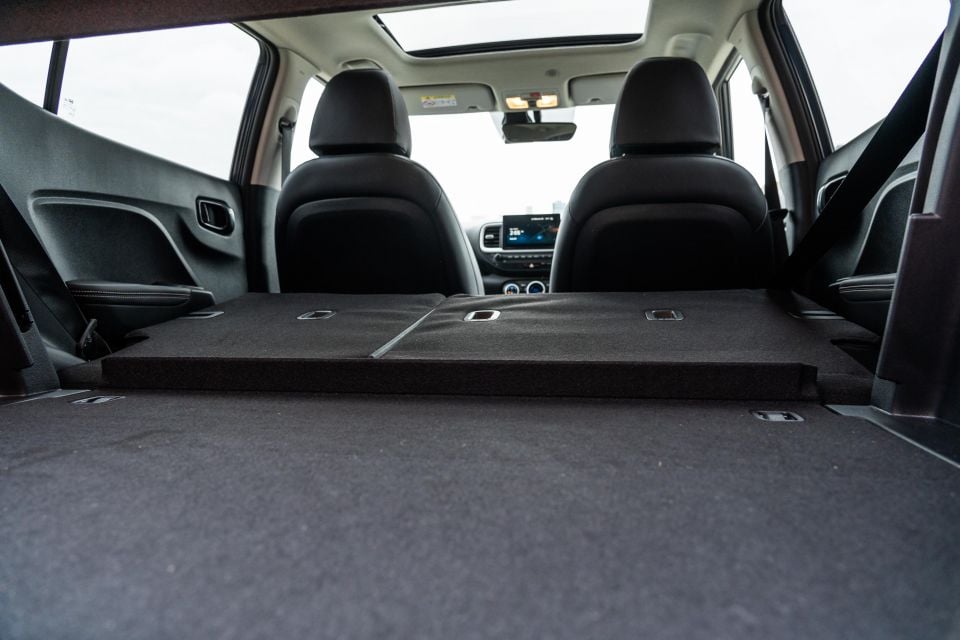
Boot capacity is quoted at 355 litres, which is more than you’ll get in similarly priced rivals.
The space is wide and easy to load items into, while the rear bench folds 60/40 for added practicality. It folds with a minimal step between the boot floor and seatbacks too, so the extra cargo room is usable.
| Dimensions | Hyundai Venue Elite |
|---|---|
| Length | 4040mm |
| Width | 1770mm |
| Height | 1592mm |
| Wheelbase | 2520mm |
| Cargo capacity | 355 litres |
To see how the Hyundai Venue compares with its rivals, use our comparison tool
The whole Hyundai Venue range is powered by a naturally aspirated 1.6-litre four-cylinder engine producing 90kW of power and 151Nm of torque.
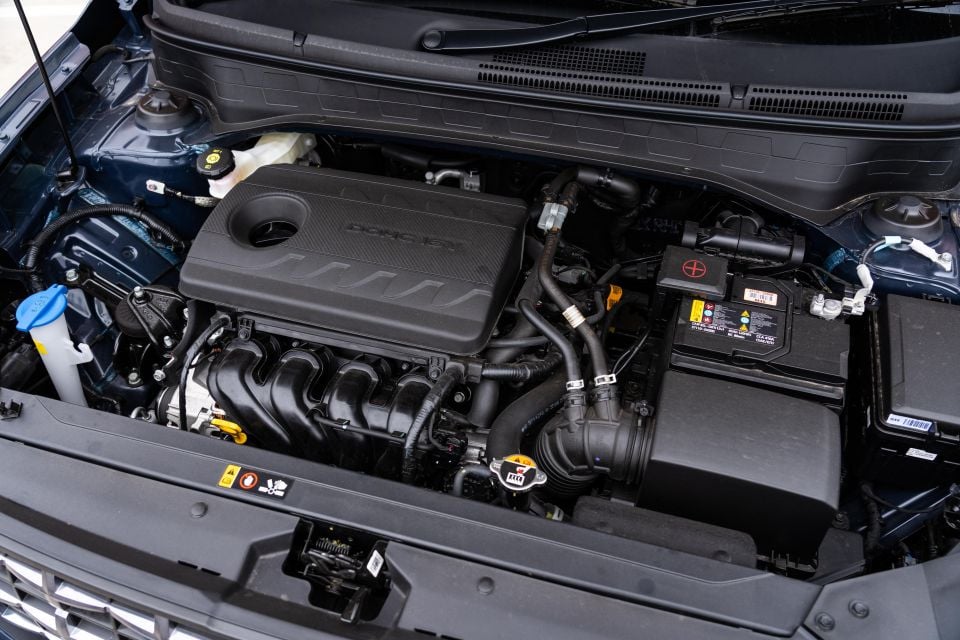
| Model | Hyundai Venue Elite |
|---|---|
| Engine | 1.6-litre 4cyl naturally aspirated |
| Power | 90kW |
| Torque | 151Nm |
| Transmission | 6-speed automatic |
| Driven wheels | Front-wheel drive |
| Kerb weight | 1225kg |
| Fuel economy (claimed) | 7.2L/100km |
| Fuel economy (as tested) | 8.5L/100km |
| Fuel tank capacity | 45L |
| Fuel requirement | 91 RON |
| Emissions (CO) | 165g/km |
To see how the Hyundai Venue compares with its rivals, use our comparison tool
The Venue may be an ‘SUV’, but don’t expect an insulated, cushy driving experience.
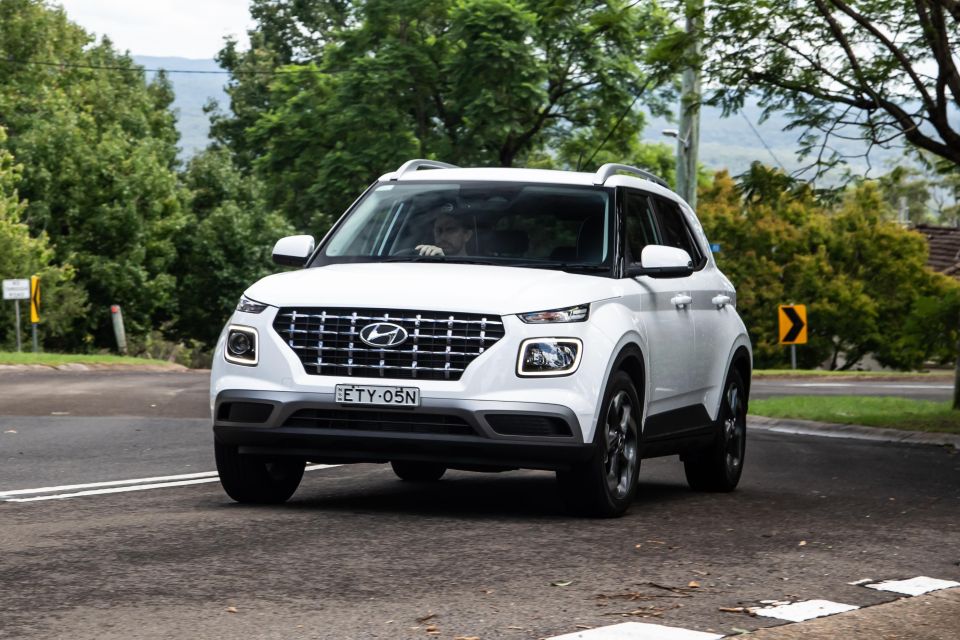
Our tester never quite felt settled on regular suburban streets, transmitting harsh vibrations into the cabin. The car was also crashy over speed humps, which caused me to flinch on approach.
Base model examples are equipped with 15-inch alloy wheels, but the Active and Elite feature 17-inch alloys which may have played a role in the harsher ride.
At least its compact dimensions and reversing camera make parking simple, especially in tight confines.
The automatic transmission is smooth and smart for the most part, keeping revs down where possible at lower speeds.
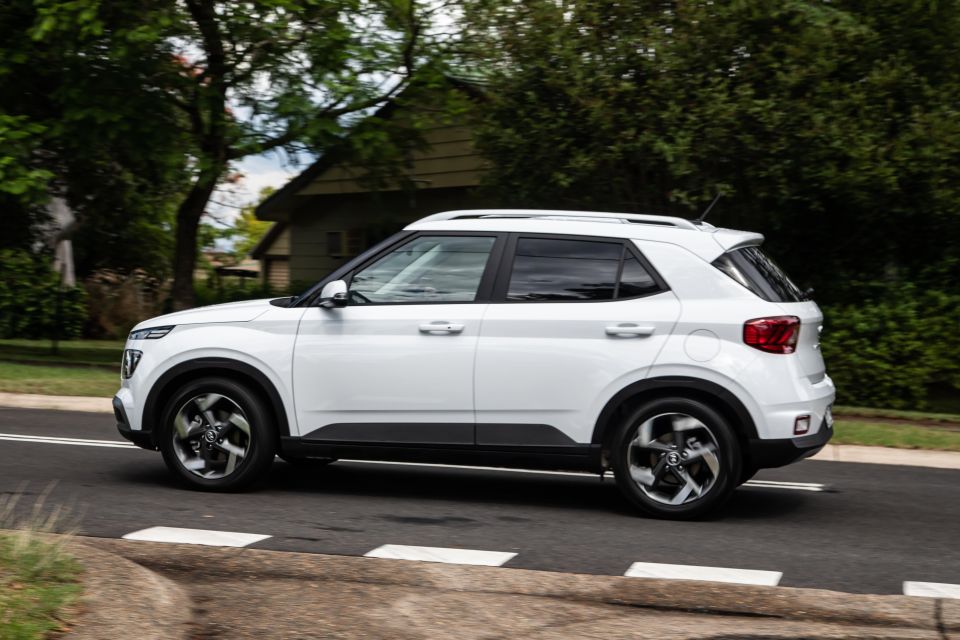
However, we found the steering requires a lot of effort before the car responds, which undermines your confidence navigating city laneways and narrow country roads. It’s all a bit vague.
You have to be gentle with the Venue, because it doesn’t like to be rushed. That sentiment extends to the engine, which is underpowered outside of urban environments.
With just 90kW and 151Nm, the naturally aspirated four-cylinder under the bonnet has to work particularly hard to reach highway speeds. It’s okay once you’re cruising, but getting past a dawdler requires some planning in advance.
With that said, one of the Venue’s key rivals – the Kia Stonic – makes do with 74kW, and is even slower to accelerate to 100km/h. It’s not exactly a segment packed with traffic light drag racing royalty.
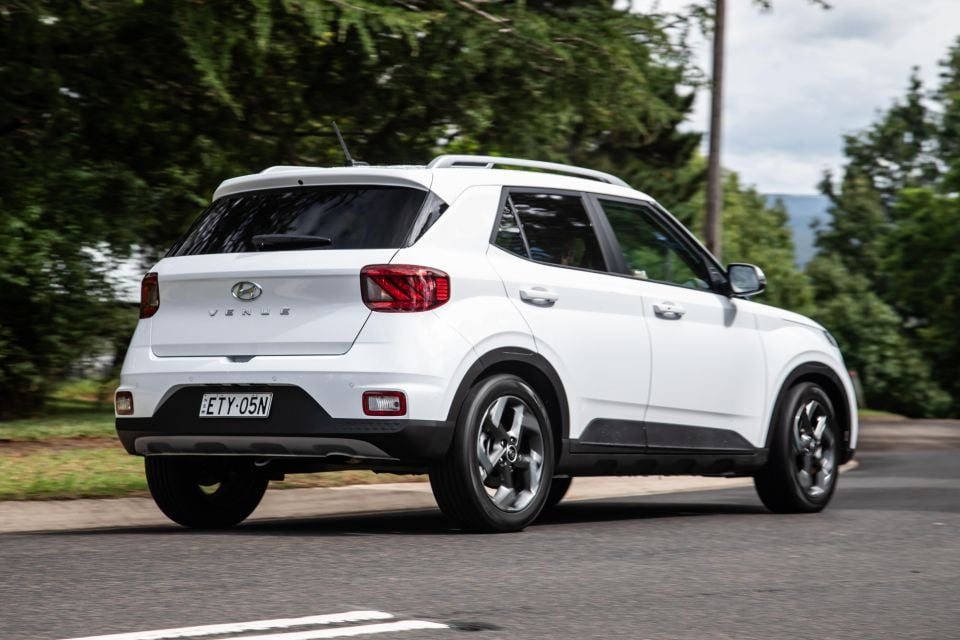
Where expert car reviews meet expert car buying – CarExpert gives you trusted advice, personalised service and real savings on your next new car.
Highway driving in the Venue reveals another issue, in the form of noise. Weighing in at just 1225kg it’s a lightly built machine, and that is noticeable in the road and wind noise it produces.
We had to turn the stereo right up to drown out tyre roar and wind buffeting which peaked at speeds over 80km/h.
The Venue is more at home in the city, where its little engine doesn’t need to work as hard.
We achieved an average fuel economy figure of 8.5L/100km, which is solid for a naturally aspirated small SUV, but not standout when you consider a hybrid-powered Toyota Yaris Cross will achieve less than half that.
The integration of safety technology into modern cars can’t necessarily make them, but it can break them, which isn’t the case for the Venue.
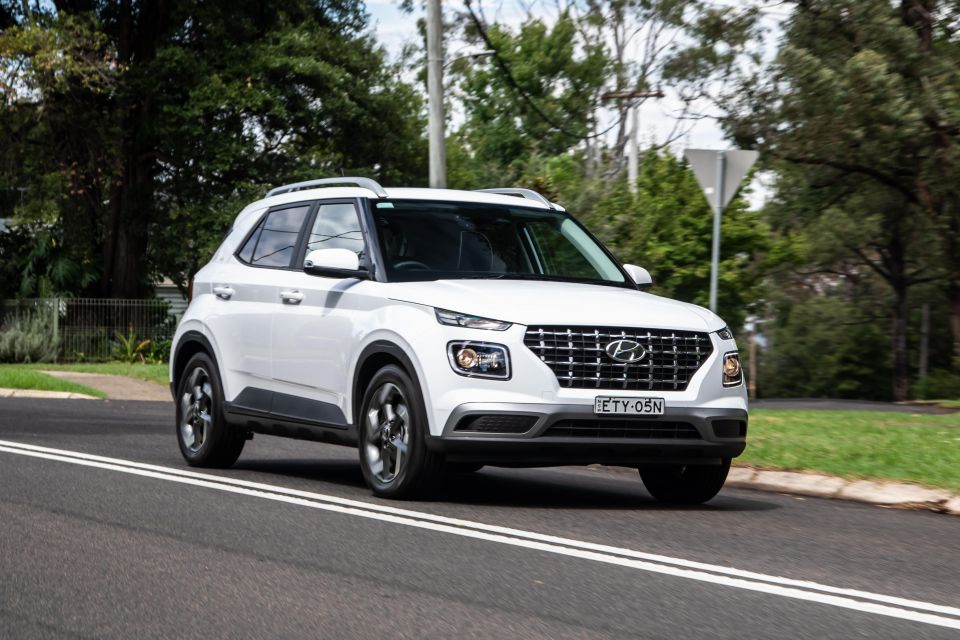
We barely noticed the safety systems during our time with the car, and the lane-keep assist, blind-spot monitoring, and driver attention warning functions worked seamlessly.
That makes the Venue an easier car to drive on road trips, if you can tolerate the noise and firm ride.
While the Venue is no rugged off-roader, adventurous owners can select sand, mud and snow traction control modes via a rotary dial on the centre console. The same dial can also be used to switch drive modes.
To see how the Hyundai Venue compares with its rivals, use our comparison tool
There are three trim levels in the Venue range.
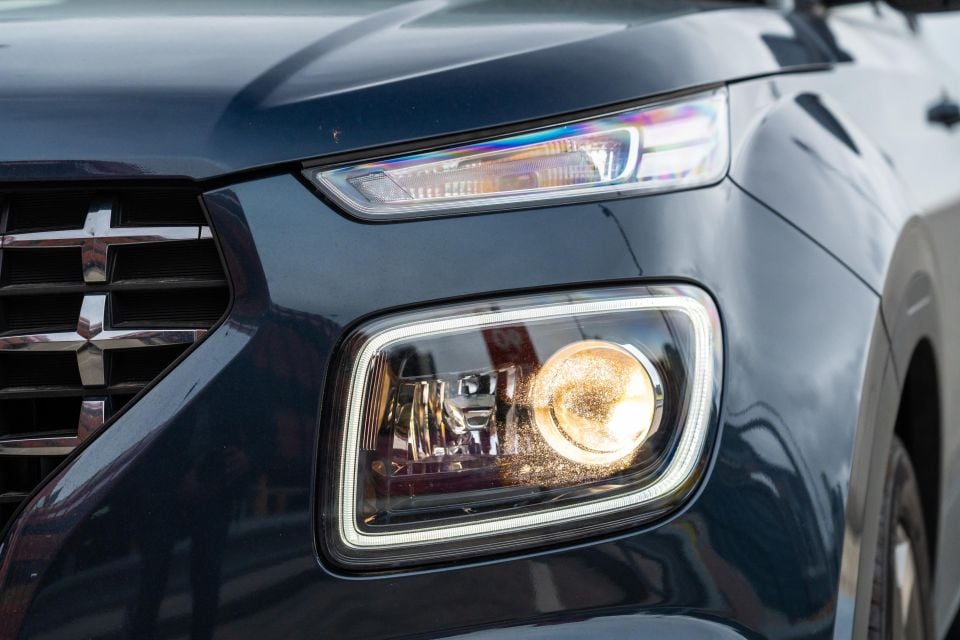

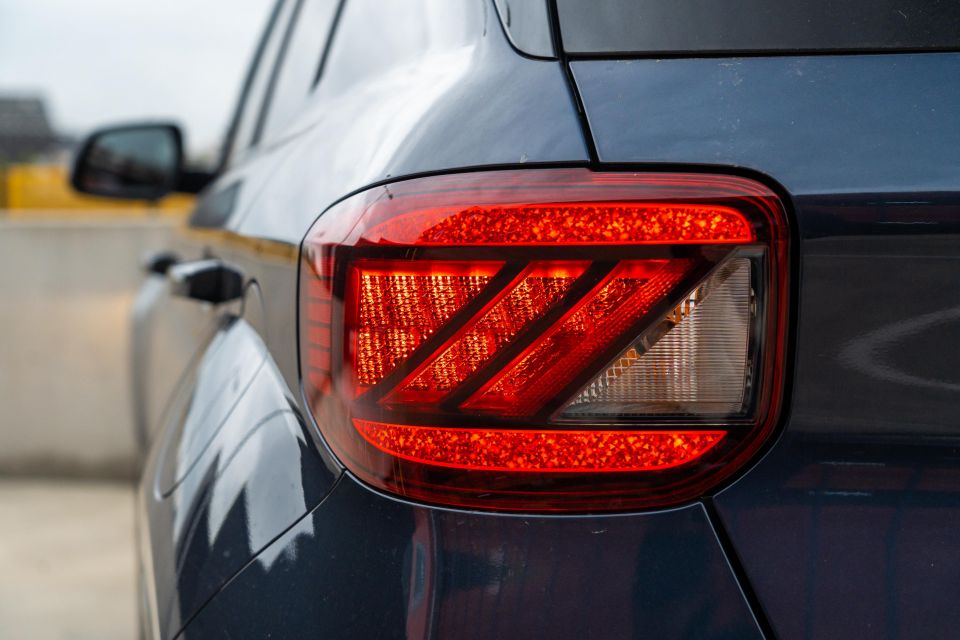
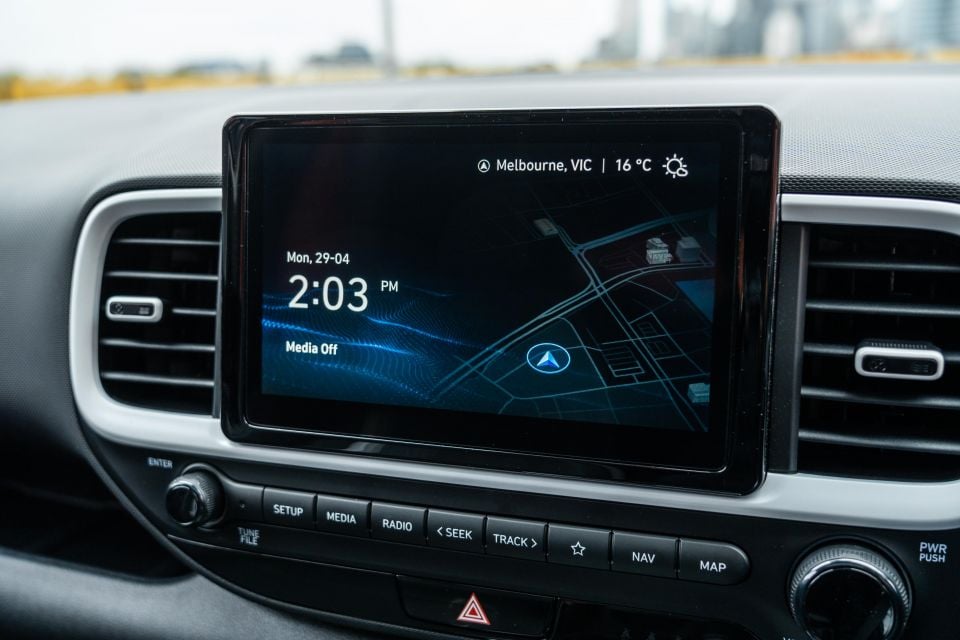
Venue equipment highlights:
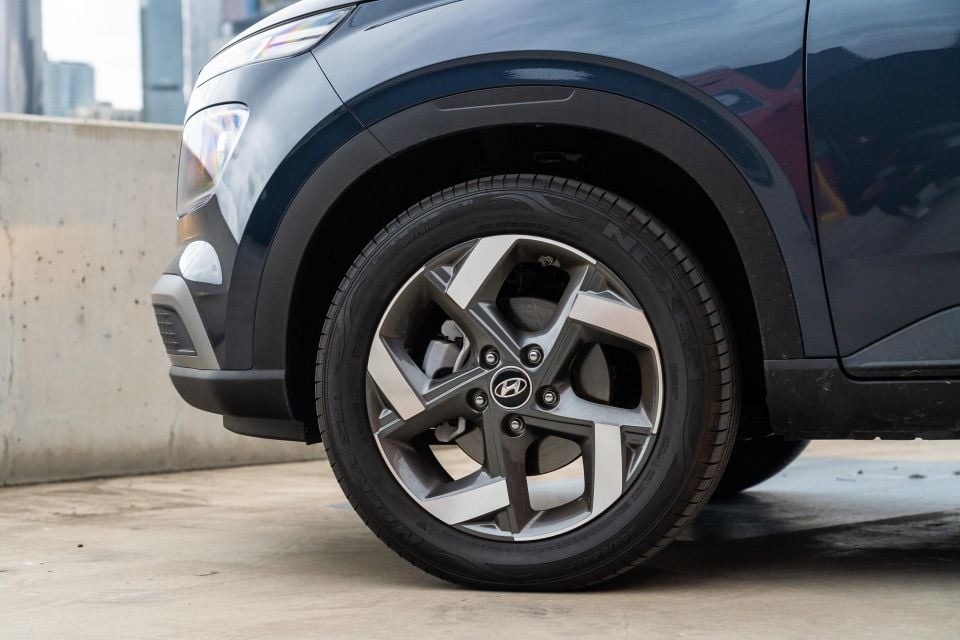
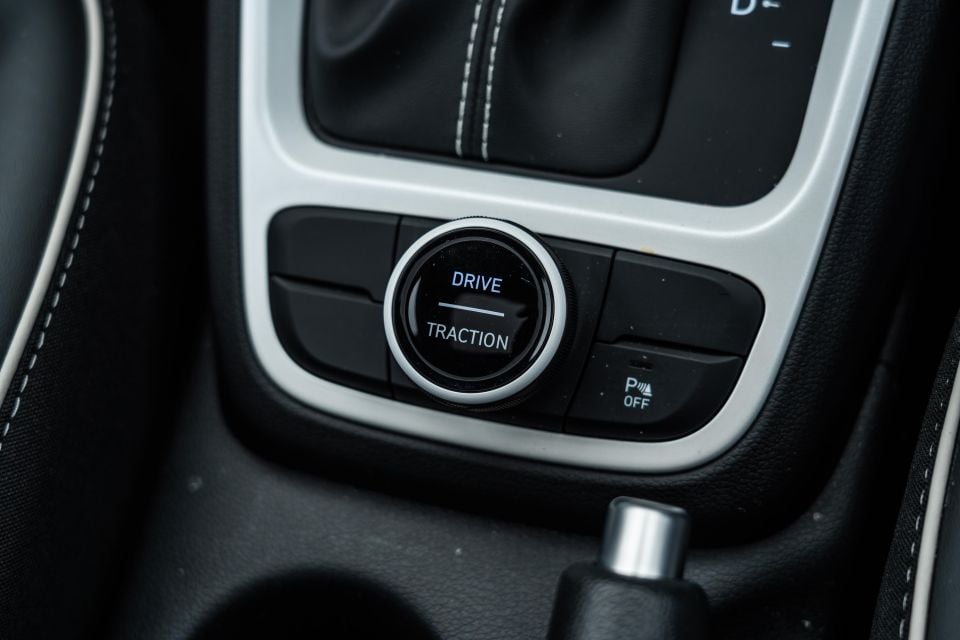
Venue Active adds:
Venue Elite adds:
To see how the Hyundai Venue compares with its rivals, use our comparison tool
The Hyundai Venue has a four-star ANCAP safety rating based on testing conducted in 2019.
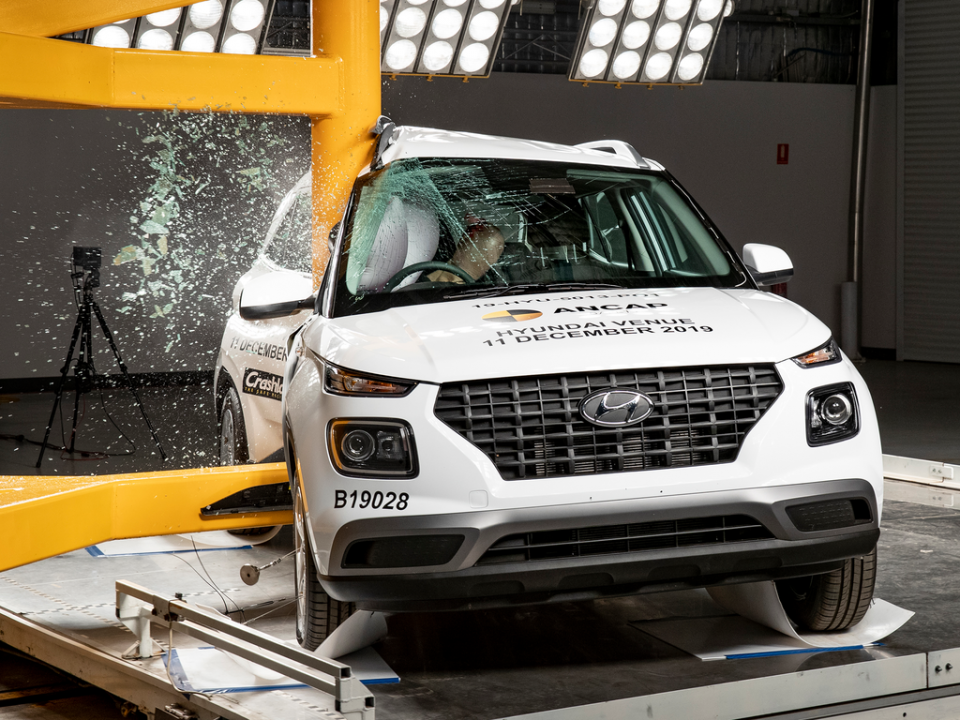
| Category | Hyundai Venue |
|---|---|
| Adult occupant protection | 91 per cent |
| Child occupant protection | 81 per cent |
| Vulnerable road user protection | 62 per cent |
| Safety assist | 62 per cent |
The following safety equipment is standard on all Venue models:
Venue Active adds:
Venue Elite adds:
To see how the Hyundai Venue compares with its rivals, use our comparison tool
The Hyundai Venue is backed by a five-year, unlimited-kilometre warranty.

| Running costs | Hyundai Venue Elite |
|---|---|
| Warranty | 5 years, unlimited kilometres |
| Roadside assistance | 12 months – standard Lifetime – service activated |
| Service intervals | 12 months or 15,000 kilometres |
| Capped-price servicing | Lifetime |
| Total capped-price service cost | $1865 – 5yr pre-paid plan |
To see how the Hyundai Venue compares with its rivals, use our comparison tool
The Hyundai Venue Elite is a solid option for younger (or older) buyers who appreciate practicality and having the latest tech at their fingertips.
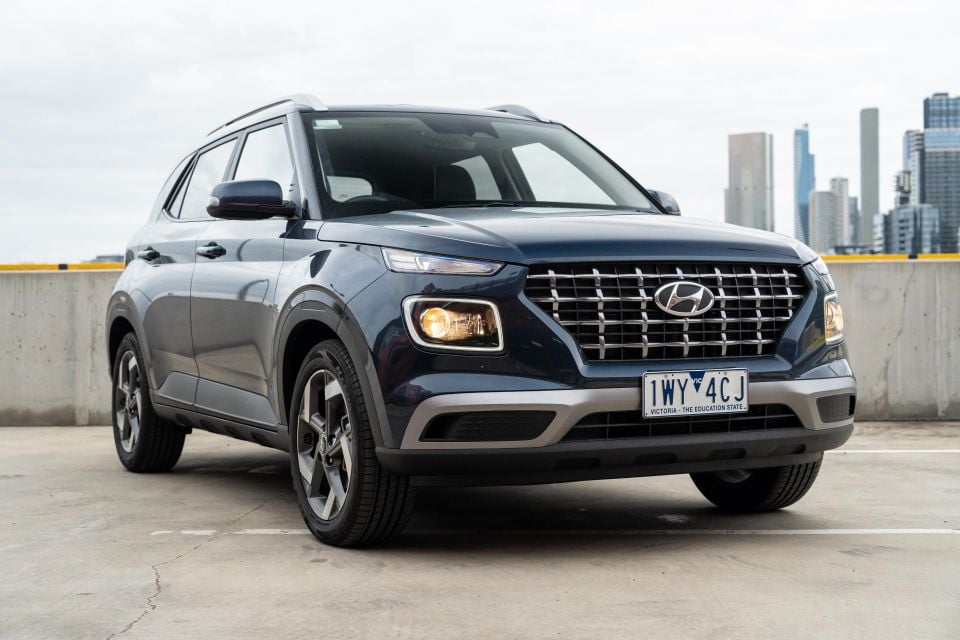
It’s got plenty of infotainment and safety gadgets, while still coming in at an affordable price point. Cargo room and second row space is also superior to most comparable city hatchbacks.
The driving dynamics leave some room for improvement, though. The ride is firm in the Elite on its big wheels, and the engine runs out of puff when you get away from the city.
There’s also work to be done on the steering, which undermines this car’s credentials as an easy-to-park option for urban dwellers.
While the Elite still represents strong value, I’d drop down to the base model which doesn’t undermine many of the Venue’s strengths. It’s an absolute bargain at $22,500 before on-roads, as long as you know how to drive a manual.
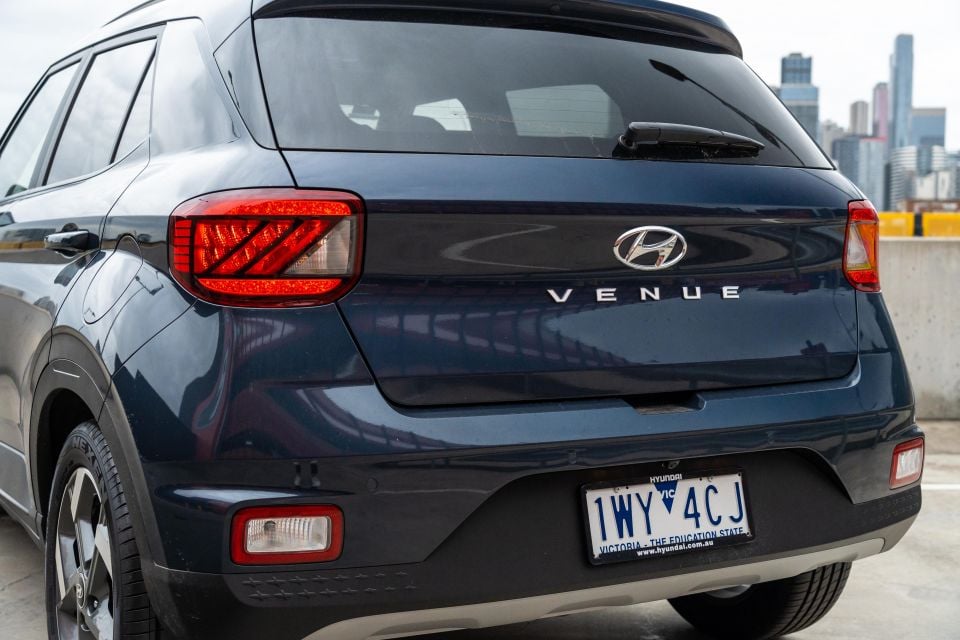
Interested in buying a Hyundai Venue? Get in touch with one of CarExpert’s trusted dealers here
Click the images for the full gallery
MORE: Everything Hyundai Venue
Where expert car reviews meet expert car buying – CarExpert gives you trusted advice, personalised service and real savings on your next new car.
Josh Nevett is an automotive journalist covering news and reviews, with a background in motorsport journalism.


Damion Smy
9 Hours Ago
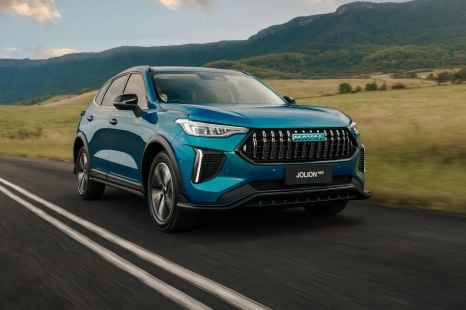

Max Davies
2 Days Ago
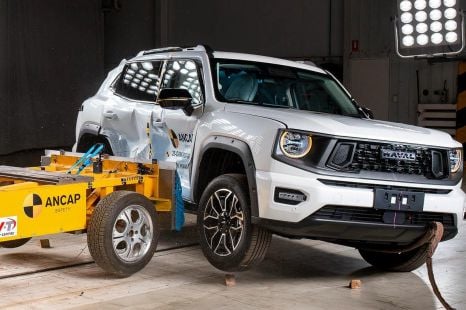

James Wong
4 Days Ago
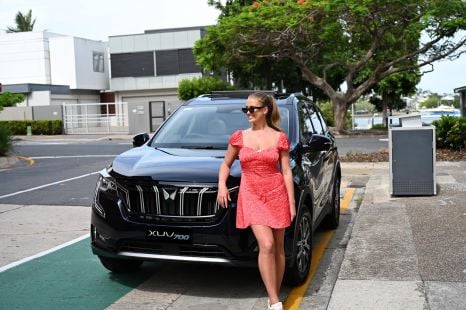

CarExpert.com.au
12 Days Ago
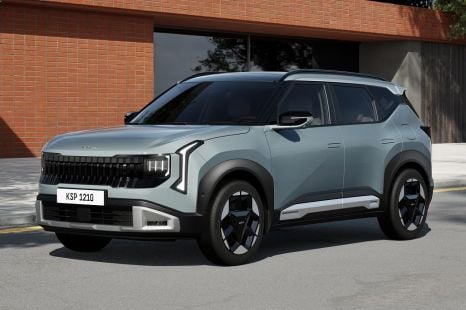

Max Davies
12 Days Ago


William Stopford
14 Days Ago